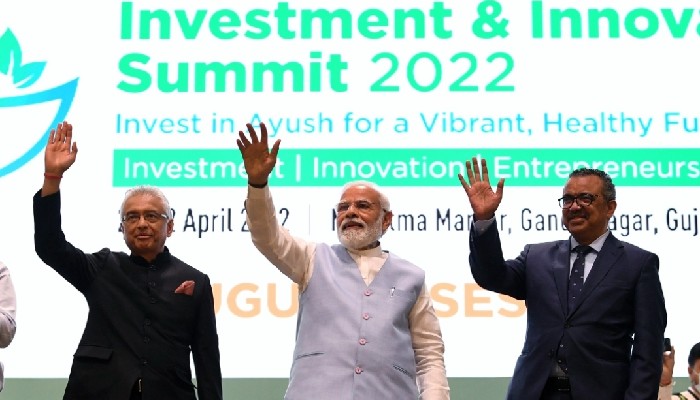He called upon large organisations and institutions to strive towards sustainability in their operations
With the recent landmark of 100 Gigawatt of installed renewable energy capacity, India is fast moving towards becoming a global leader in energy transition, said Vice President M Venkaiah Naidu on Sunday.
Dedicating a1.5 Megawatt rooftop solar power plant at Jawaharal Institute of Postgraduate Medical Education Research (JIPMER), Puducherry to the nation, Vice President Naidu said, “Seen against the bigger picture, this project is in line with our efforts to meet the Intended Nationally Determined Contribution (INDC) commitments to the Paris Climate Conference by 2030.”
“With the recent landmark of 100 Gigawatt of installed renewable energy capacity, India is fast moving towards becoming a global leader in energy transition,” he stated.
The Vice President said that to continue the momentum of this ‘energy transition’, rooftop solar installation is a small but sustainable contributor.
Land-mounted solar projects come at a cost—they involve land procurement and often involve environmental concerns, he pointed-out.
Rooftop solar plants, on the other hand, use empty areas on buildings, generate power close to the point of consumption and reduce transmission losses, Naidu stated.
“We must push for more adoption of rooftop solar plants in industries and big establishments like universities and government buildings and godowns,” he argued.
In the spirit of this project, the Vice President called upon other large organisations and institutions, including the Public Sector Units to strive towards sustainability in their operations.
It will not only benefit the organisation at a micro level by saving costs, but will also benefit the nation as a whole as we stride towards sustainable development, he explained.
Naidu said that he believes that the time has come for all states and local bodies to consider adopting the model building by-laws for new buildings.
“Solar rooftop plants, solar water heaters and rainwater harvesting must be made mandatory for certain categories of buildings exceeding specified size and/or power consumption thresholds,” he added.
According to Vice President Naidu, State, Central and UT governments must work together as Team India in this sector as well.
They must popularise and bring about greater awareness among people on the benefits of installing solar panels on their rooftops, he added.
The Vice President said massive campaigns must be undertaken to widely publicize the subsidy and incentive programmes of the government so that more and more people set up solar plants on their rooftops.
People must understand that the initial costs of setting up a solar plant after subsidy is offset by the benefits in the long term, he indicated.
Moreover, there are bound to be significant savings on recurring electricity expenditure, he said.
Referring to the lessons from the pandemic, Naidu stressed the importance of ventilation and air circulation in buildings.
"Sunlight is a natural disinfectant. Our ancestors understood this – it reflected in their planning and construction of houses”, the Vice President noted.
He underscored the need to create living and working spaces with ample ventilation and natural light in order to maintain good health.
Naidu also commended medical institutions like JIPMER for showing extraordinary resolve during the pandemic and rising to the occasion. He said that due to the collective efforts of such institutions, doctors, medical staff, and healthcare workers, the country has been fighting the pandemic effectively.
 Contact Us
Contact Us  Subscribe Us
Subscribe Us









 Contact Us
Contact Us
 Subscribe
Subscribe
 News Letter
News Letter

